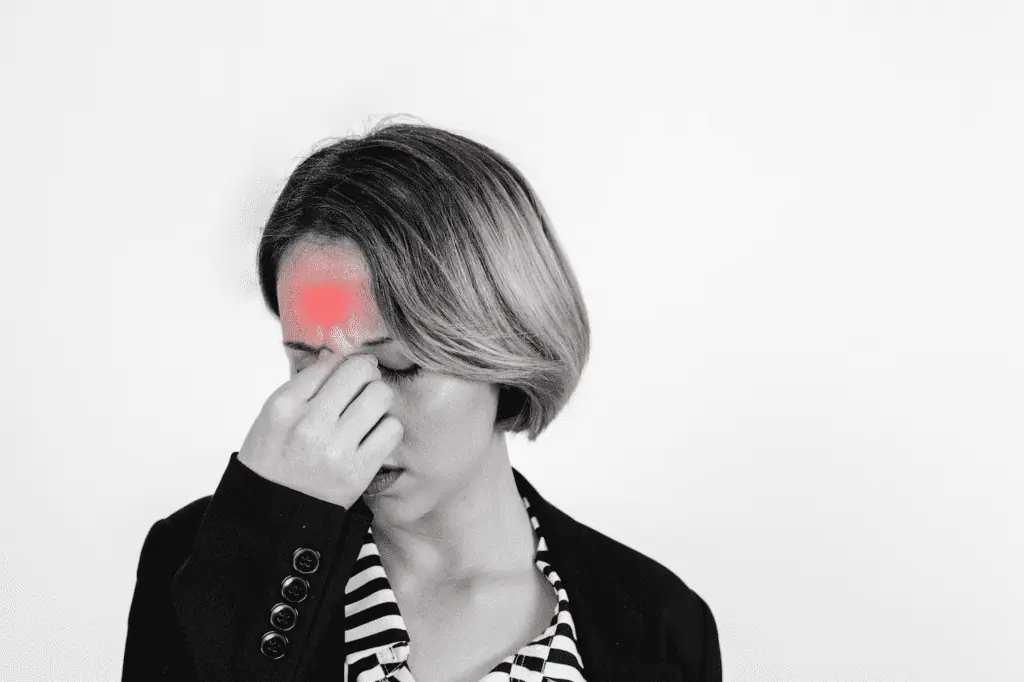
Are you one of the millions of people who suffer from migraines? If so, you know how debilitating they can be. But did you know that there are certain triggers that can cause a migraine attack?
In this blog, we’ll discuss the five most common triggers of migraine and how to cope with them.
What is Migraine?
Migraine is a neurological disorder that can cause severe headaches, nausea, and vomiting. It affects about 12% of the world’s population and is more common in women than men.
Migraine attacks are typically characterized by auras (sensory disturbances that precede or accompany the headache), which may include flashing lights, blind spots, or tingling on one side of your body. The symptoms usually last from 4 to 72 hours and can vary from person to person, depending on their severity.
Symptoms Of Migraine
Migraine symptoms can vary from person to person, but there are some common signs that you may be suffering from a migraine. Symptoms include:
- Severe throbbing pain or pulsing sensation, usually on one side of the head
- Nausea, vomiting, and extreme sensitivity to light and sound
- Pain that interferes with daily activities
- Increased sensitivity to light and sound
- Dizziness or feeling faint
- Pain on one side of your head
- Tiredness, nausea, visual disturbances, numbness and tingling, irritability, difficulty speaking, and temporary loss of vision
- Congestion or watery eyes
Common Triggers Of Migraine
There are many things that can trigger migraines, but there are also things you can do to help prevent them. Let’s take a look at some common triggers and how to manage them.
Stress
Stress is a common trigger of migraine. It can affect your mood and make you feel stressed out and anxious. This can cause the muscles in your face, neck, and scalp to tighten up. These muscles are connected to blood vessels in the brain that supply oxygen-rich blood to your brain. When these muscles tense up, it can cause them to squeeze the blood vessels closed, which reduces the flow of oxygen-rich blood to your brain and can cause a headache.
Moreover, stress can cause the release of hormones, such as cortisol, which can lead to inflammation in the brain. This changes the brain’s chemistry and increases the risk of a migraine.
The best way to manage stress-triggered migraines is to take steps to reduce or manage stress. To cope with stress, it’s important to find healthy ways to manage it, such as exercise, yoga, or meditation.
Lack Of Sleep
It’s no secret that lack of sleep can have a negative impact on our health, but did you know that it can also trigger migraines? Lack of sleep increases the creation of proteins in the body that cause chronic pain. This can lead to a tension headache or even a migraine.
So what can you do to prevent a migraine caused by a lack of sleep? First, make sure you’re getting enough sleep. Aim for 7-9 hours of sleep each night. Additionally, avoid substances like alcohol, nicotine, and caffeine before bed, as these can interfere with your sleep quality and consistency. Finally, take time to relax before bed by engaging in calming activities like reading, meditating, or listening to music.
If you’re still experiencing headaches or migraines, it may be time to see a healthcare provider. They can help you determine the cause of your headaches and create a treatment plan that works for you.
Caffeine
If you live in America, you’ve probably got some kind of caffeine addiction. And if you’re addicted to caffeine, you might be familiar with migraines—the pounding headache that makes it feel like your brain has been replaced by a jackhammer.
Caffeine is one of the most common triggers of migraines. That’s right—the stuff that gives your coffee its kick can also cause you to feel like you’ve been hit by a ton of bricks.
This can be a surprise to many, as caffeine is often considered a good way to fend off headaches and improve energy. However, when you consider the high concentrations of caffeine in coffee or soda, it’s easy to see why these drinks may actually contribute to headaches instead of helping with them. Because caffeine is a stimulant, it can cause blood vessels to constrict and expand rapidly. This can cause changes in blood flow to the brain that trigger migraines in susceptible people.
If you suspect that caffeine is triggering your migraines, try eliminating all sources of caffeine for two weeks and then slowly reintroduce them into your diet one at a time to see if any particular beverage causes symptoms. You can also try decaffeinated coffee or decaf sodas if you’re not ready to eliminate caffeine altogether.

Hormones
Hormones are chemical messengers that help regulate your body’s functions. When hormones are out of balance, it can cause a variety of symptoms, including migraines. This is especially true for women who have premenstrual migraines, or PMS. During this time, their bodies produce more estrogen than usual, and this can lead to headaches, dizziness, and nausea.
Moreover, if you have irregular periods or have recently experienced menopause-related hot flashes, then it’s possible that hormones play a role in your migraines.
The good news is that these hormones aren’t permanent; they’ll come back into balance eventually. If you’re worried about your hormones’ role in your headaches, talk to your doctor about ways to manage them while they’re out of whack!
Diet
You may be surprised to learn that your diet is one of the most common triggers for migraines. In fact, some studies show that certain foods and drinks can cause migraines in as many as one-third of all people who have them. These triggers are different for everyone, but there are some common ones that many people experience.
The best thing you can do is keep a food diary and write down everything you eat, then compare it to your symptoms. If there’s a correlation between what you eat and when your migraines occur, it might be worth trying an elimination diet to see if cutting out certain foods makes you feel better.
It is also important to note that not all migraine sufferers will have the same food triggers, so it is important to experiment and find out what works best for you.
How Are Migraines Diagnosed?
Whether you’ve been experiencing symptoms for a while or just recently started to notice a change, it’s important to talk with your doctor. Migraine triggers vary from person to person, and an accurate diagnosis can help you get the right treatment.
Your doctor will ask about your symptoms and medical history, including the medications you take and any family history of migraine. They’ll also do a physical exam and ask about your diet, sleep habits, and stress level. Moreover, your doctor may order blood tests or other tests depending on their findings during their exam.
How To Prevent Migraines
Migraines are no fun. They’re painful, and they can last for days. But if you know what to do, you can prevent them from happening in the first place!
Be Mindful Of Triggers
The first step in preventing migraines is to identify what triggers your headaches. You may have one or more factors that set off your migraines, but it’s important to understand which ones are most likely to cause problems for you so that you can avoid them in the future.
Keep A Journal Of Symptoms And Triggers.
This will help you to identify patterns that could be causing your migraines, which will, in turn, help you find ways to avoid them. For example, if you notice that headaches occur more frequently when you eat certain foods or are exposed to certain smells or sounds, then avoiding those things may help.
Also, it’s important to remember that there is no one-size-fits-all cure for migraine prevention—it’s different for everyone! So don’t give up too soon if something doesn’t work out right away. Try different options until you find something that works for you.
Bottom Line
Living with a migraine can be difficult, but understanding your triggers can help you find relief. If you’re experiencing a migraine attack, it’s important to take your medication and rest in a dark, quiet room. Additionally, try to identify your triggers and avoid them when possible.